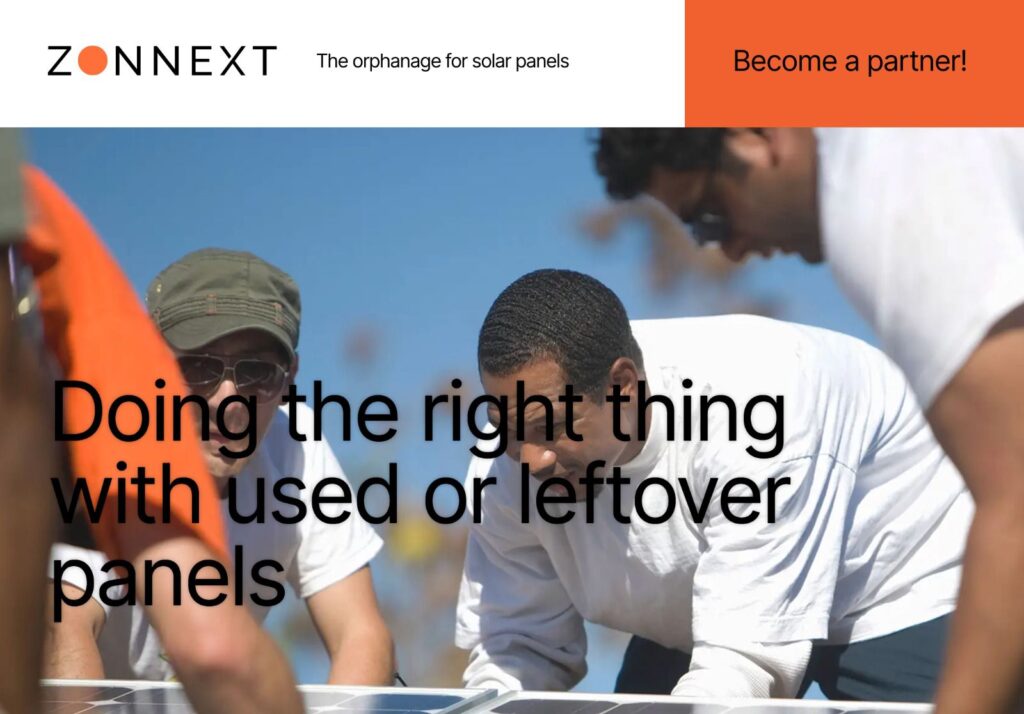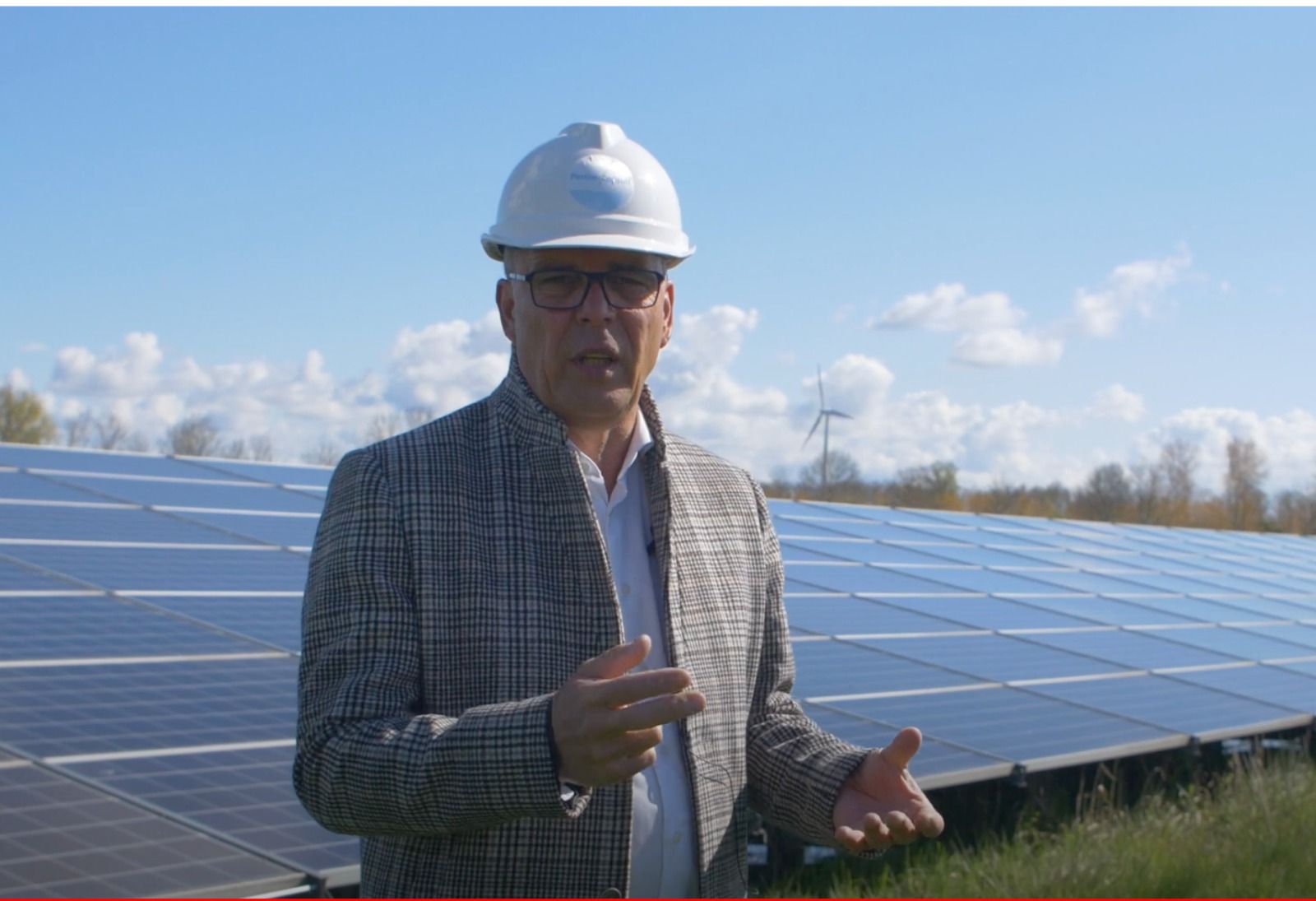by Geert Jan Pastoor, ESRAG Renewable Energy Task Force
Empowering Communities with Repurposed Solar Panels
Solar panels are gradually becoming an indispensable part of our society. Clean energy is an important answer to the climate problem and an indispensable link in the transition from fossil to renewable energy. However, in rich and developing countries, the capital cost of solar installations is still far beyond reach for many people and organizations that could benefit from this power source. Rotary and Rotaract Clubs can help by sponsoring used or surplus solar panels which have been certified for reuse in the kinds of projects I will describe here.
Though many solar panels are replaced before the end of their useful life, many of our old Dutch panels disappear into concrete in Belgium. To offer a better alternative, we submitted plans with a consortium and experts in 2021 to enable high-quality raw material recovery and reuse of solar panels. Here is a video about the circular economy opportunities, created for the MBO College in Lelystad.
One of the experts was scientist and circular economy expert and former Dutch environment minister Professor Jacqueline Cramer. TNO (the Netherlands Organization for Applied Scientific Research) also helped us in this process. Unfortunately, the responsible producer organization, the OPEN Foundation, did not want to cooperate with the plans. Without this cooperation, we have not yet been able to set up a factory for this.
ZonNext: Giving New Life to Solar Panels
But that has not stopped us from working with renewed enthusiasm on making the reuse of solar panels possible, because why would you throw away solar panels that are still working? To do so, we organized the ZonNext Foundation, which matches discarded solar panels to a suitable applicant.

ZonNext: The Orphanage for Solar Panels
As Wee Nederland points out, “When a panel is tested to high standards and found suitable, we will provide a full report.” Second-hand panels can be very effective in regions such as in Eastern or Southern Europe where land costs are lower than in the Netherlands, or in regions with more intense or longer hours of sunshine, like Africa.
Together with Weee Nederland (which takes care of the collection and is one of the sponsors) and Refurn (a social enterprise which tests and certifies the panels), we prevent the rapidly-growing supply of used solar panels from becoming a waste problem, and we help the energy transition further along the way, including putting solar power within reach of people with a smaller wallet.
Weee Nederland gives examples: “Someone looking for used solar panels for his nonprofit or business. Or someone who wants to export the panels abroad. These used solar panels are cheaper than new ones: the price mainly consists of the costs for cleaning, testing and transporting the panels. The buyer can then arrange for an installer.” Our commercial customers pay market value, with the margin helping to subsidize solar projects for NGOs.
We have already been able to carry out many great projects that add up to a combined total of 5,500 solar panels installed, preventing over 10,000 kg of e-waste per year. For example, in collaboration with Tesla, we have delivered off-grid installations to Ukraine. These can serve a field hospital without a power supply or help Ukrainians prepare food despite the current high energy prices. Here the demand is still greater than the supply of used panels. However, in addition to the selfless efforts of many, the foundation is dependent on donations from sponsors to finance this. But we do what we can!
And there are numerous other beautiful projects, like installing 900 reused panels for an energy cooperative in Amsterdam. Smaller initiatives are also welcome, such as 40 panels for the Petra Church in Harderwijk, the Hockey Club MHD in Dieren and the Anne Frank School in Leiden. Another is the special project in Haarlemmermeer where the municipality helps low-income residents to pay their energy bills. About 30 households took advantage of this free scheme in which not only panels were reused, but also the mounting materials and parts. It couldn’t be more circular!
Do you want more information? Then take a look at ZonNext.nl or email me at [email protected] We can discuss the scope of various projects seeking solar installations, or I can help you find a donor or sponsor for a solar project you want to implement for a community in need.
Rotarian Geert Jan Pastoor, a member of ESRAG’s Renewable Energy Task Force, is the owner and executive director of Pastoor Consult, serving as a consultant and broker in circular economy and sustainable energy, developing new supply chains and markets for reused materials. Having worked for the agricultural cooperative Agrifirm, the waste disposal company VAM, Essent Milieu, EEW and the HVC group and Tirme in Spain as well for the chemical company OCI, his desire to create innovative paths in the waste-to-energy market inspired him to develop his own business.
In addition to solar panel projects, he is exploring some other circular economy solutions which could be implemented in Africa, for example using paper mill waste to create fuel to power a cement factory and developing manufacturing plants to shred water bottles into PET flakes which can be re-used for new products. He is working on many other activities in the field of waste solutions.

